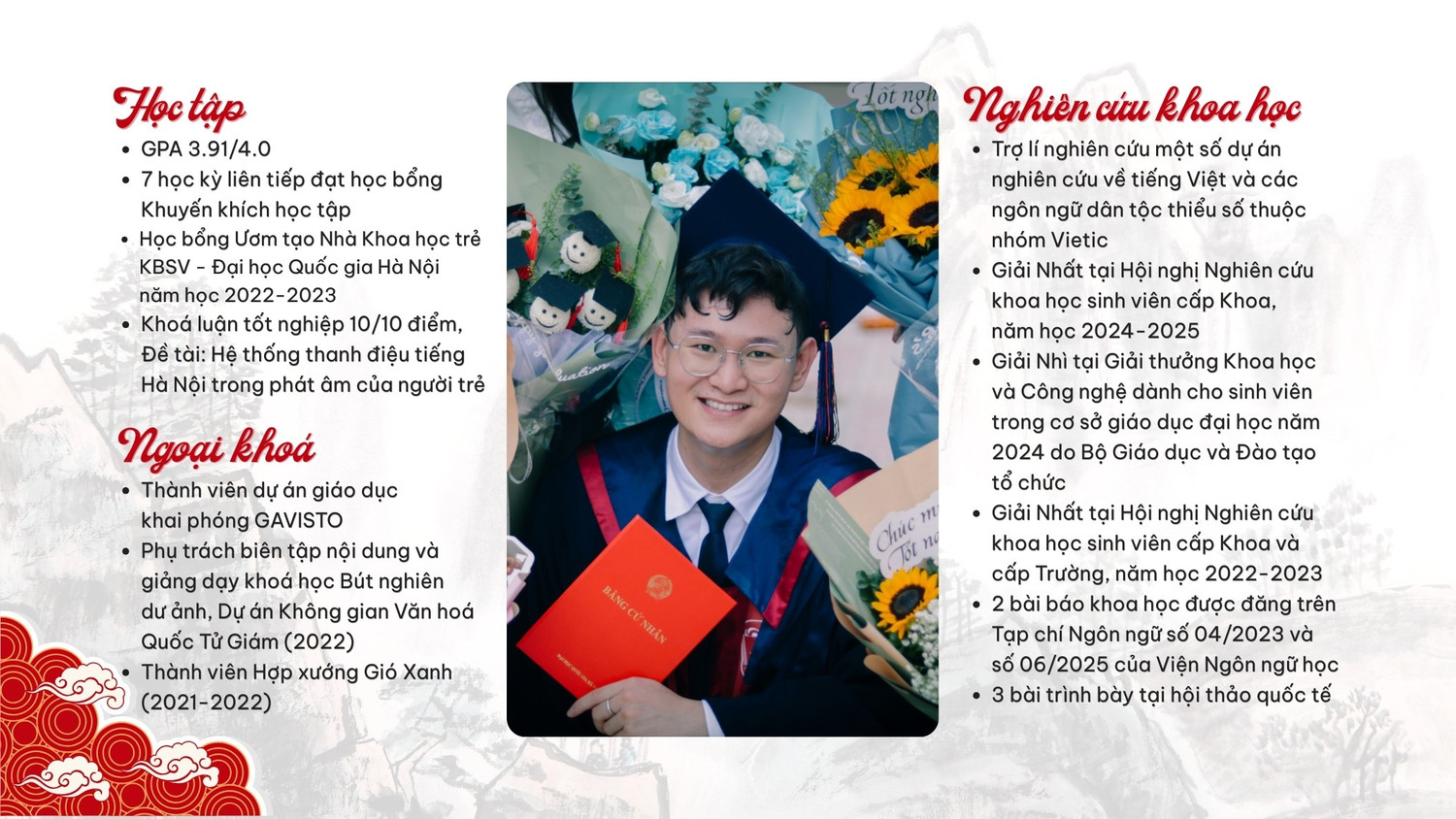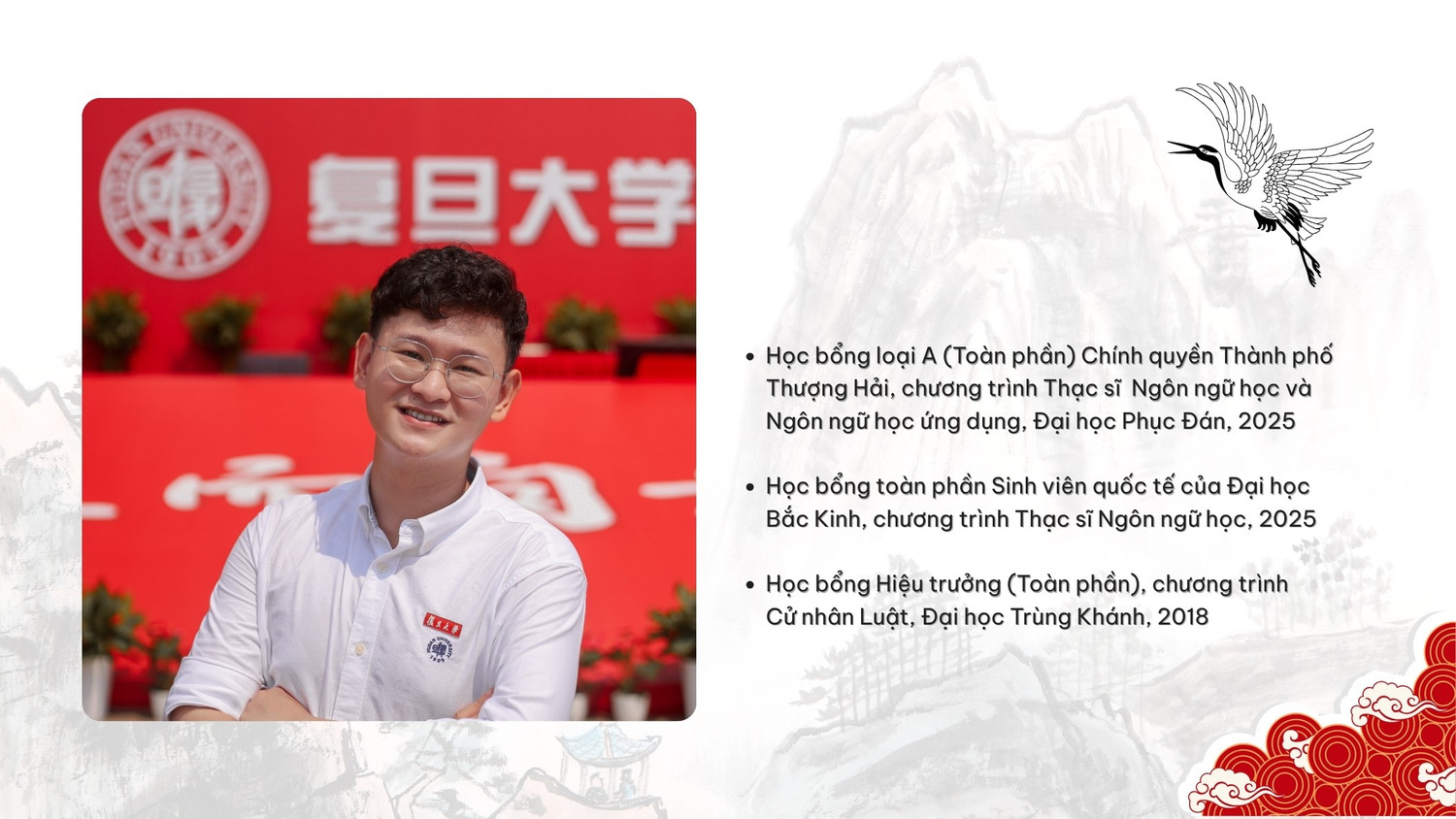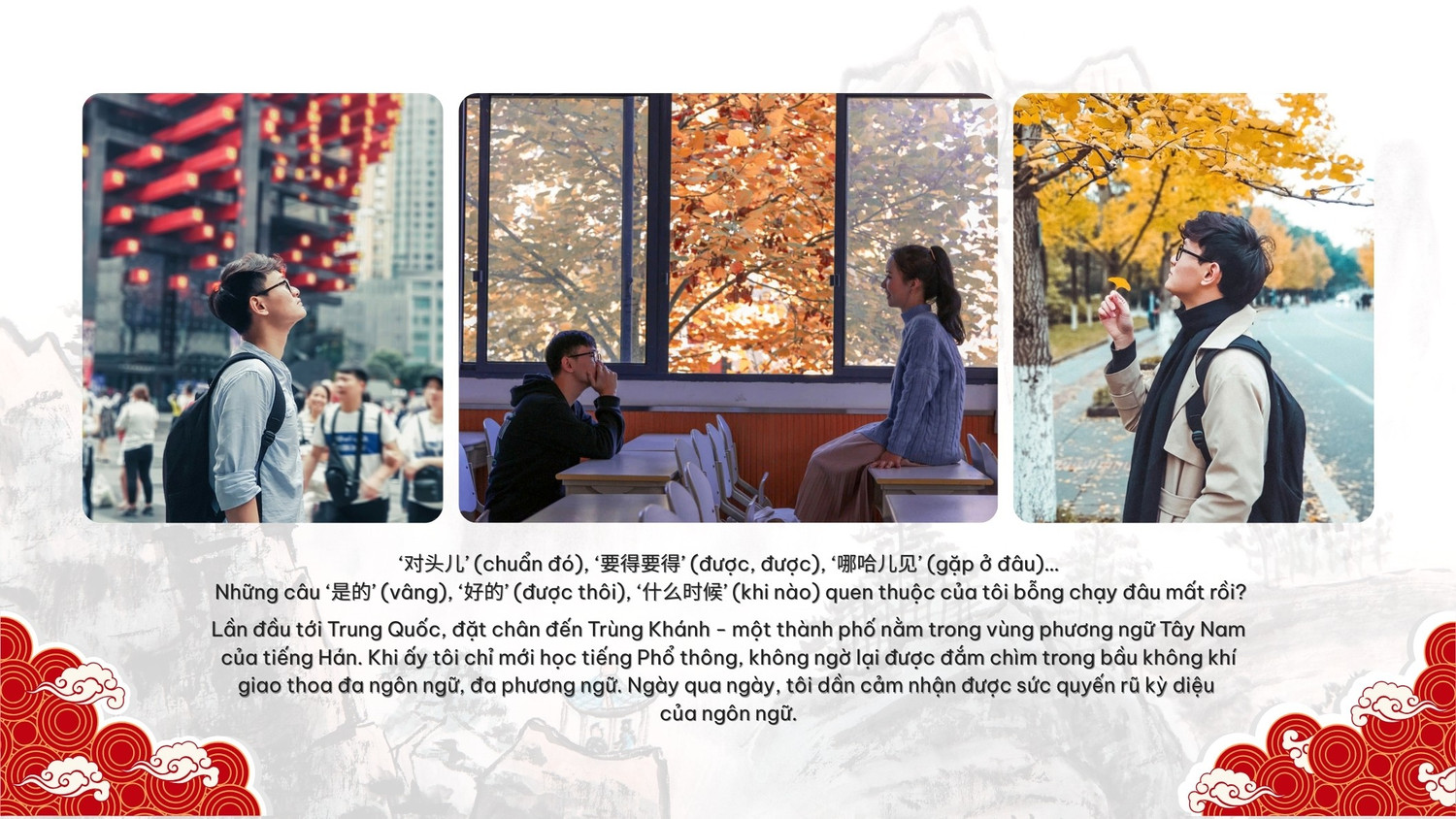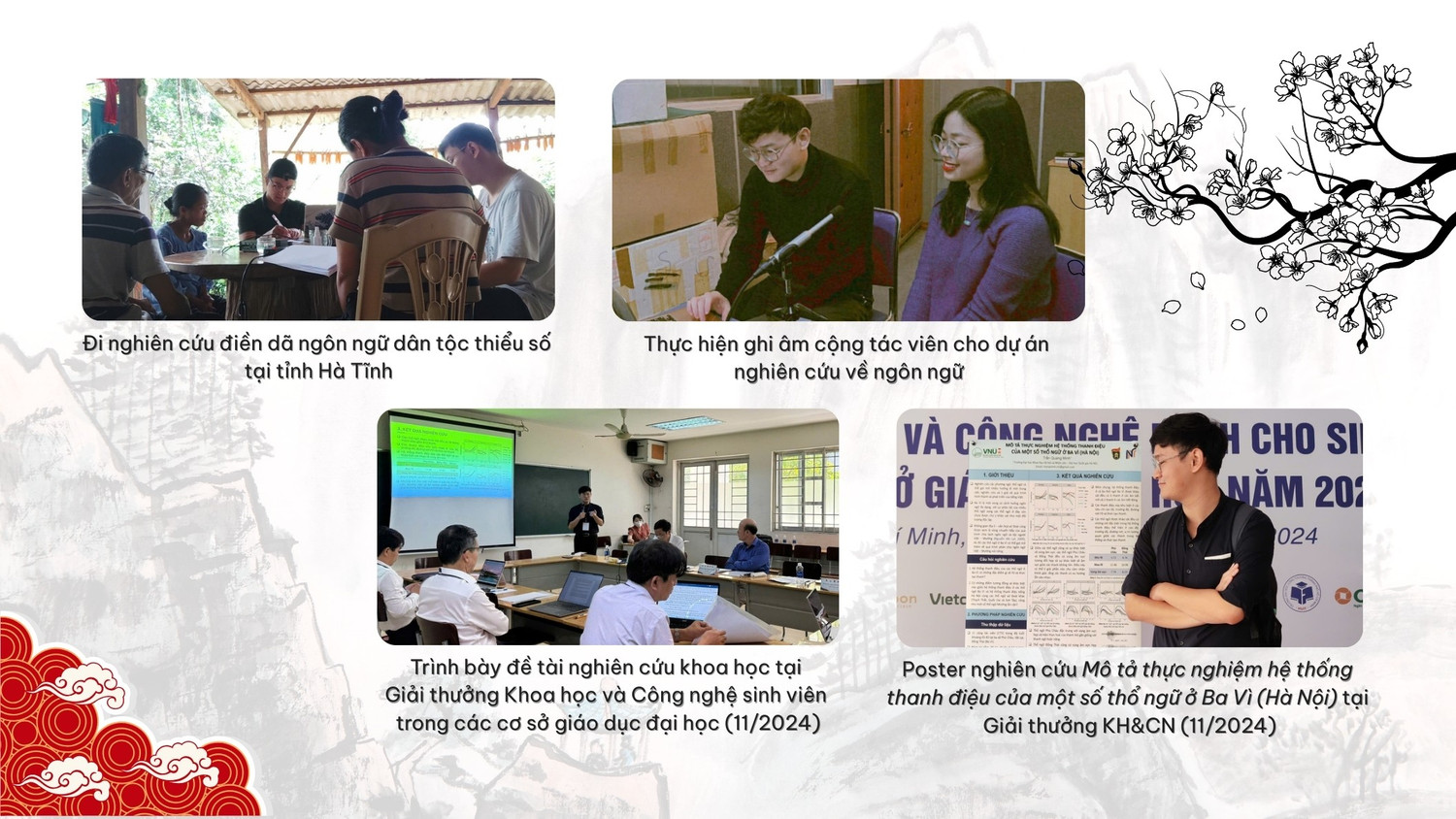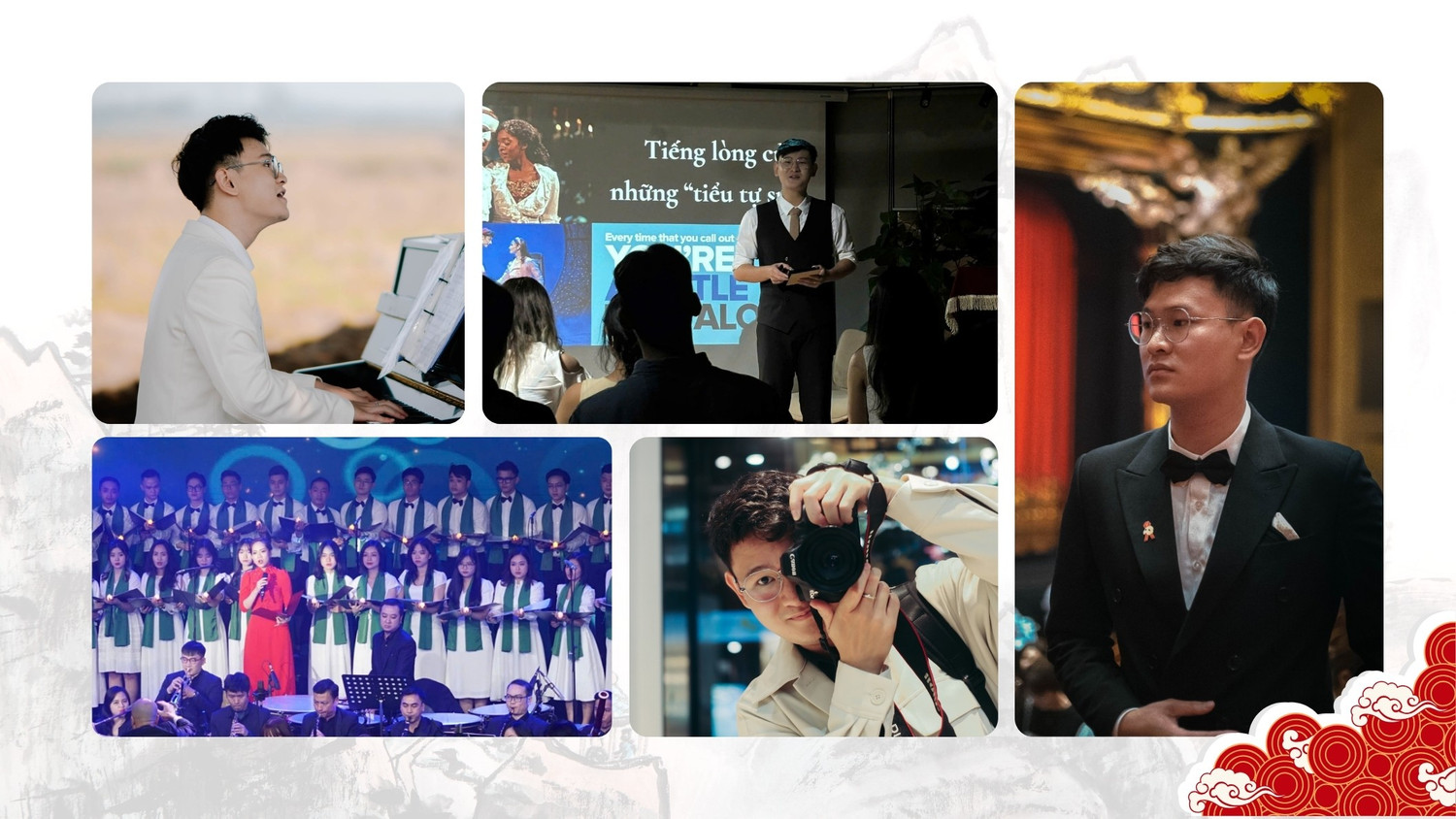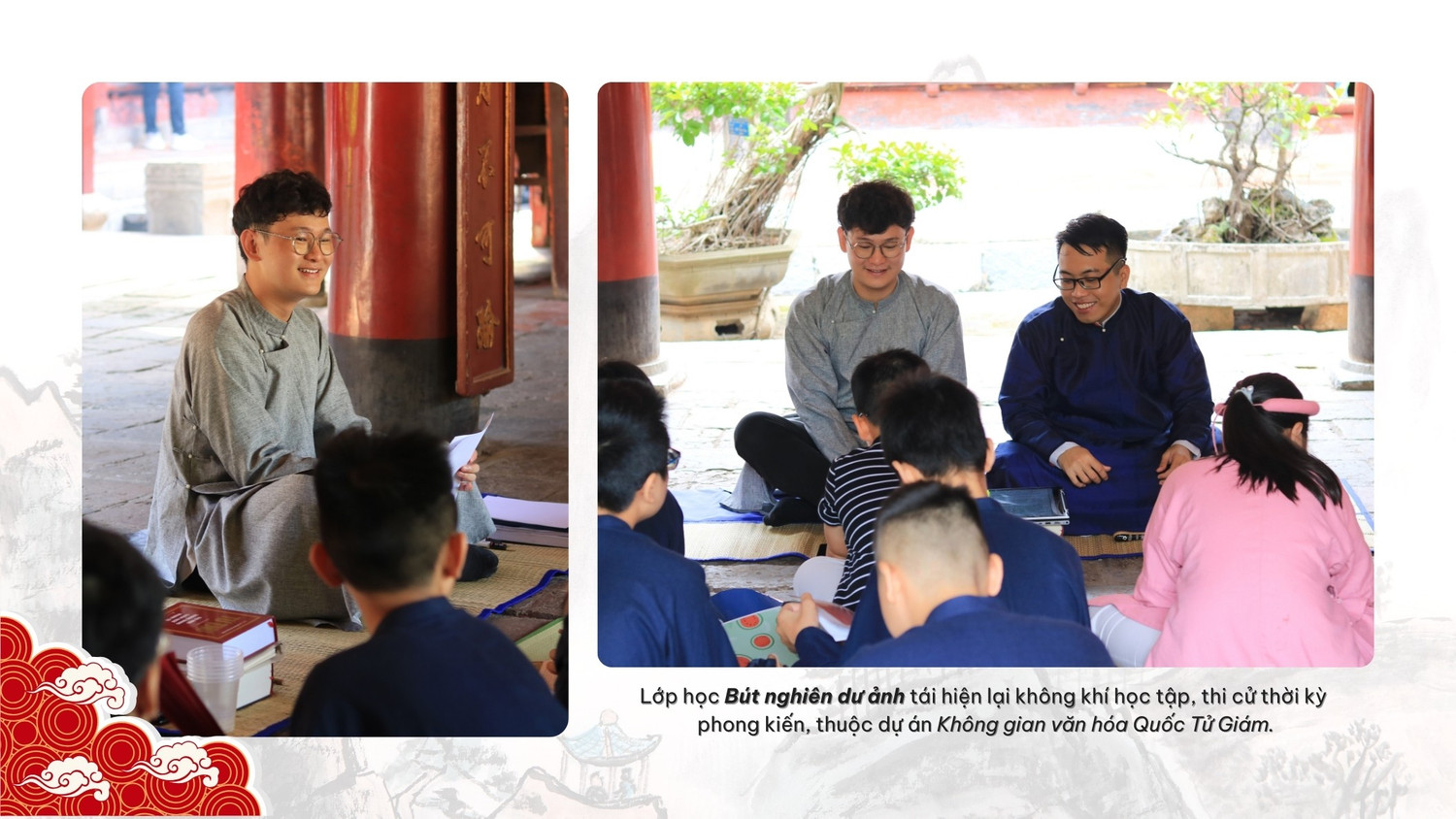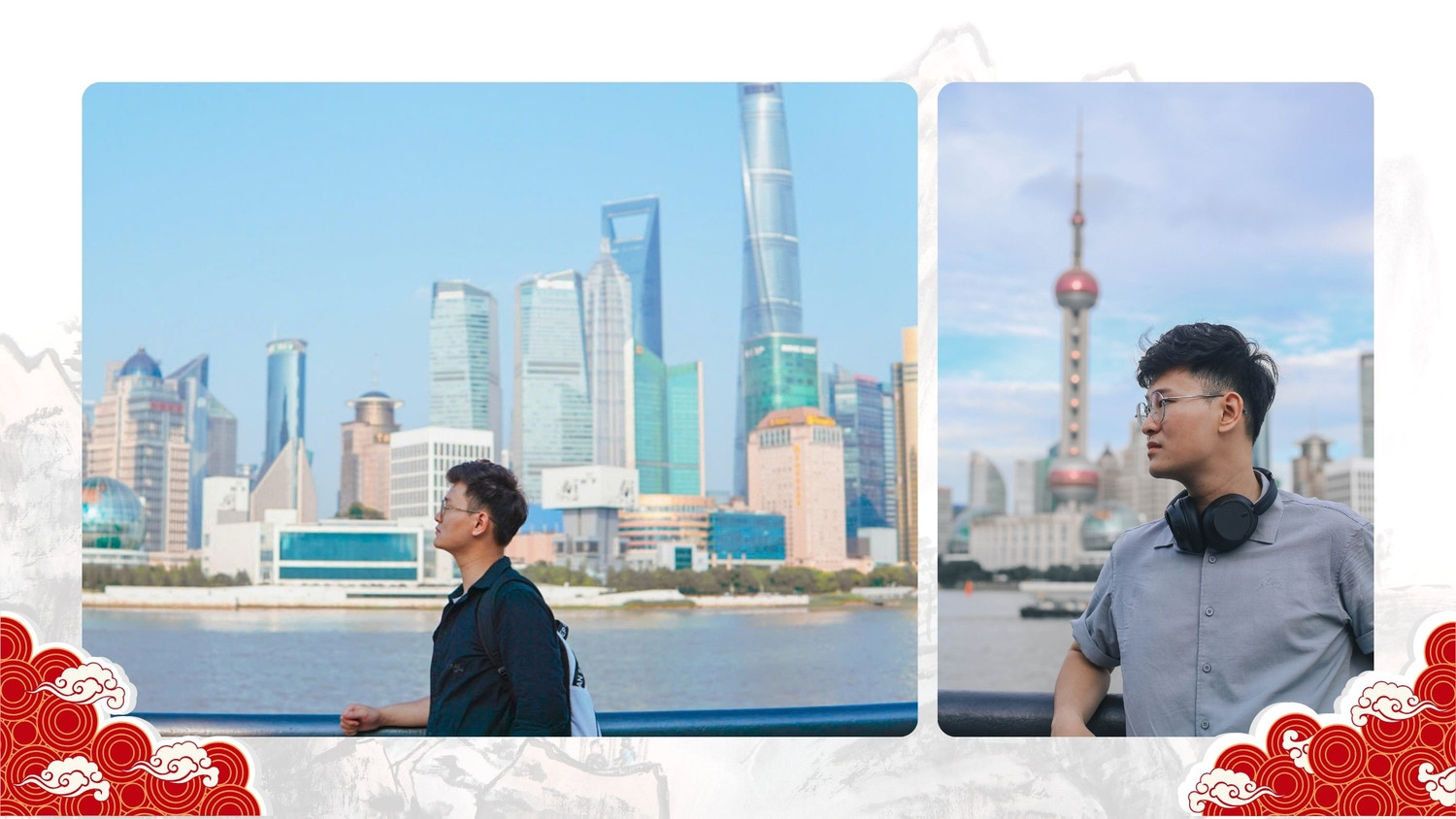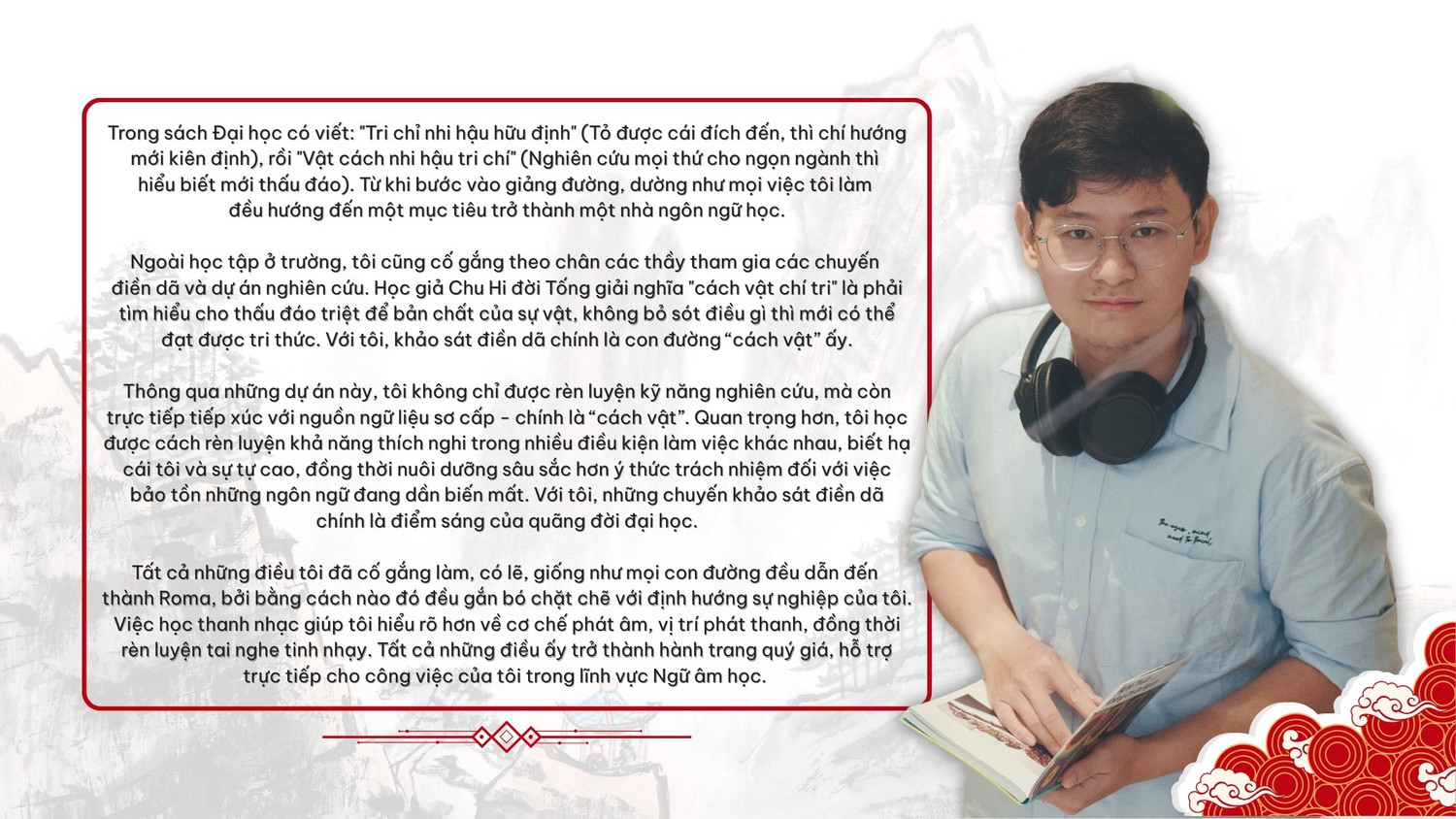My first impression of Quang Minh was that of a multi-talented young man with many interesting stories. Born in 2000 in Thai Nguyen province, Minh studied Biology in high school and then pursued Law studies abroad, but had to drop out due to the pandemic. Returning to Vietnam, he retook the university entrance exam and became the top-scoring student in Linguistics. He also took time to learn to play the piano, practice singing, participate in choir activities, teach, and work on social projects.
During that time, Minh also won several scientific research awards and the title of valedictorian of the Linguistics department at the University of Social Sciences and Humanities, Vietnam National University, Hanoi (VNU-USSH).
Some achievements of the valedictorian of the Linguistics major - University of Social Sciences and Humanities - Tran Quang Minh
In early September, just over a month after representing the graduating class at USSH, Minh eagerly attended the opening ceremony of the new academic year, beginning his master's research journey in Shanghai.
In China, the two highest-ranked universities for Linguistics according to the QS Rankings are Peking University and Fudan University, ranking 2nd and 12th in the world, respectively. Minh excelled and won full scholarships from both universities.
Minh at the opening ceremony of the 2025-2026 academic year at Fudan University and the achievements he has received from Chinese scholarships.
Join us at the Vietnamese Student Page, Tien Phong Newspaper, as we listen to Minh's sharing about her journey into Linguistics, from her initial questions in a multilingual environment to her research on Vietnamese dialects. Interwoven within this are fragments of her personal passion, where Minh finds harmony between science and art.
The beginning of a language journey.
Hi Minh, what sparked your passion for languages and motivated you to pursue a degree in Linguistics?Linguistics is an academic, theoretical field that is not widely known. In high school, I only knew I liked languages, but I was never directed towards this field.
While studying at university in China, I tutored Chinese and Vietnamese. That job sparked my interest in linguistics. To teach better, I had to compare and contrast Vietnamese and Chinese, which led to many questions, such as, "Why do Sino-Vietnamese pronunciations sound more like Cantonese than Mandarin?"
Chongqing offers a multilingual environment, with locals speaking Mandarin rather than standard Northern Mandarin. Chinese friends come from many regions, speaking various Han dialects and minority languages. International friends come from all over, speaking Russian, French, Korean, Tajikistani, Indonesian, and more.
I had the opportunity to observe, compare, and reflect on language. I also taught myself classical Chinese (Literary Chinese), a little Latin, and learned more about the simulated languages in Lord of the Rings and Avatar, while also starting to pay more attention to the differences in Vietnamese dialects.
Through reading books and discussing with like-minded people, I learned about a field that specializes in studying these issues called Linguistics. When I went back to university, I chose Linguistics instead of applied linguistics because I wanted to learn about specific subjects like Phonetics, Phonology, Dialects, Historical Linguistics, and Syntax.
Minh included his memories of his first study abroad experience at Chongqing University in his essay.Apply for a master's scholarship.
What area of linguistics research are you interested in? What is it about this field that makes you want to pursue it long-term?I really enjoy listening to, observing, and studying the sounds of languages, so I'm particularly fascinated by phonetics and dialects. My graduation thesis researched the pronunciation of Hanoi dialect by young people and the phonetic changes over more than a century.
The deeper I studied, the more I realized the value of linguistic variations. Differences in pronunciation or vocabulary, often considered "non-standard" such as confusing l/n, or flat vowels like "mĩe" and "iem," are actually linguistic "fossils," valuable resources for tracing the origins and history of the Vietnamese language.
What fascinates me is that transformation, which helps me appreciate diversity and differences more. Therefore, I want to continue researching Vietnamese phonetics and dialects. This is also a field with much room for exploration.
Currently, I am still involved in several research projects from my university days with my supervising lecturer, focusing on Vietnamese dialects and the languages of the Vietic ethnic minority groups. The vision of the project is to document and preserve endangered languages and contribute to the restoration of ancient Vietnamese.
Some of the scientific research activities that Minh has carried out.
You have a passion for musical theater and were a member of the Green Wind Choir – the first community choir in Vietnam. What led you to this artistic pursuit?I first encountered musicals when I was 7 or 8 years old through Disney movies, and in 7th grade, I was impressed by Huong Thao's musical performance on Vietnam's Got Talent. Since then, I've been immersed in the world of musicals for 13 years. For me, musicals are like the "green light" in The Great Gatsby—not just for entertainment, but also to open up new perspectives on life.
Musical theater helped me learn foreign languages, especially English. When studying language, I found it even more interesting: the plays used dialects and jargon to portray characters, and comparing translations opened doors for me to contrastive linguistics, the sociology of language, and translation theory.
Musical theater also served as a stepping stone to classical music, as its accessibility provided a foundation for deeper appreciation. During the pandemic, while stuck in Vietnam, I saved up to learn piano, fulfilling a childhood dream. Practicing the piano and singing brought me joy, honed my ear, and improved my phonetic knowledge.
In early 2021, through some friends, I had the opportunity to audition and spent nearly two years with the Green Wind Choir. There, I got to sing, perform, live in a dynamic group, and had truly unforgettable moments on the stage of the Hanoi Opera House. Although I didn't pursue a professional career in the arts, I still wanted to become a "successful" fan, and Green Wind helped me achieve that.
Along with classical music and opera, Minh also enjoys learning about world languages, studying musical instruments, vocal music, and photography.
You've also been involved in many cultural and educational projects. Have any experiences left a deep impression on you, or even changed your perspective on life?I'm a typical Taurus, so all changes come slowly through accumulated experience. But if I had to name one experience that surprised me and that I'll never forget, it would be participating in building the "Pen and Ink Reflections" course at the Temple of Literature.
While compiling learning materials for students in grades 5-8, I tried to arrange the content to be manageable and avoid dryness. However, after only two sessions, the students responded very positively, with some even asking in-depth questions and sharing their personal observations. This completely surprised me.
After the course, many parents reported that their children proactively sought out more information on topics such as philosophy, examinations, and traditional culture. This made me believe that even the most academic knowledge, if properly prepared and delivered, can touch hearts and spark curiosity even at a young age.
Young teacher Quang Minh during a class session at But Nghien Du Anh.
I have to go to Fudan to study Linguistics.
When did you start planning to build your application for a master's scholarship in China? What was the process like from submitting your application to receiving the results?Ever since I returned to university, I've been nurturing the plan to prepare for a master's degree in China. The actual application period was only from September 2024 to January 2025, but the quiet preparation lasted for four years.
In September 2024, I retook the HSK 6 exam; from October to December, I completed the procedures and only applied to two universities: Beijing and Fudan. The application was sent at the end of December, interviews were held in Fudan in February 2025 and in Beijing in March, and I received the results just one week after the interviews.
Having won scholarships to two of China's top universities for linguistics, what were your reasons for choosing Fudan University?When choosing a university, I set clear criteria: it had to offer a Linguistics program, have experts in phonetics, dialects, and historical linguistics, have a strong research tradition, and have adequate facilities. Based on that, and after consulting with friends, the two best options were Fudan University and Peking University. I chose Fudan University because it met all the criteria.
Shanghai is also a city I love because of its dynamism, international atmosphere, and rich dialectal identity. Shanghainese belongs to the Wu dialect group of Chinese, which differs significantly from Standard Mandarin, creating a unique strength for dialect studies at Fudan University.
During the interview, I was impressed by the professors' interest in Southeast Asian languages outside the Sino-Tibetan language family, which aligned well with my research focus. Afterward, one professor even proactively emailed me, expressing interest in becoming my "apprentice," which completely shifted my decision to pursue Fudan University.
Ming Dynasty architecture in Shanghai's Bund is famous.
Which part of your application did you like best? In your opinion, what were the standout features that convinced the universities?My application included personal documents, an academic CV, an HSK Chinese language certificate, a study plan, and letters of recommendation from two linguistics experts who are my lecturers at the University of Social Sciences and Humanities. During the preparation process, I also frequently exchanged ideas and sought advice from two very close friends, one pursuing a PhD in Linguistics in the US and the other a bachelor's degree in South Korea.
What I value most isn't any single part of my application, but rather demonstrating authenticity. Every detail in my CV and letters of recommendation stems from personal experience. Furthermore, I strived to create a coherent essay, linking academic studies, research, and extracurricular activities. I believe this consistency clearly showed the committee my passion and serious, long-term commitment.
An excerpt from his essay helped Minh win master's scholarships from both Fudan and Peking University.
Thank you, Minh, for sharing with our readers, and we wish you a successful and fulfilling master's journey at Fudan University!
